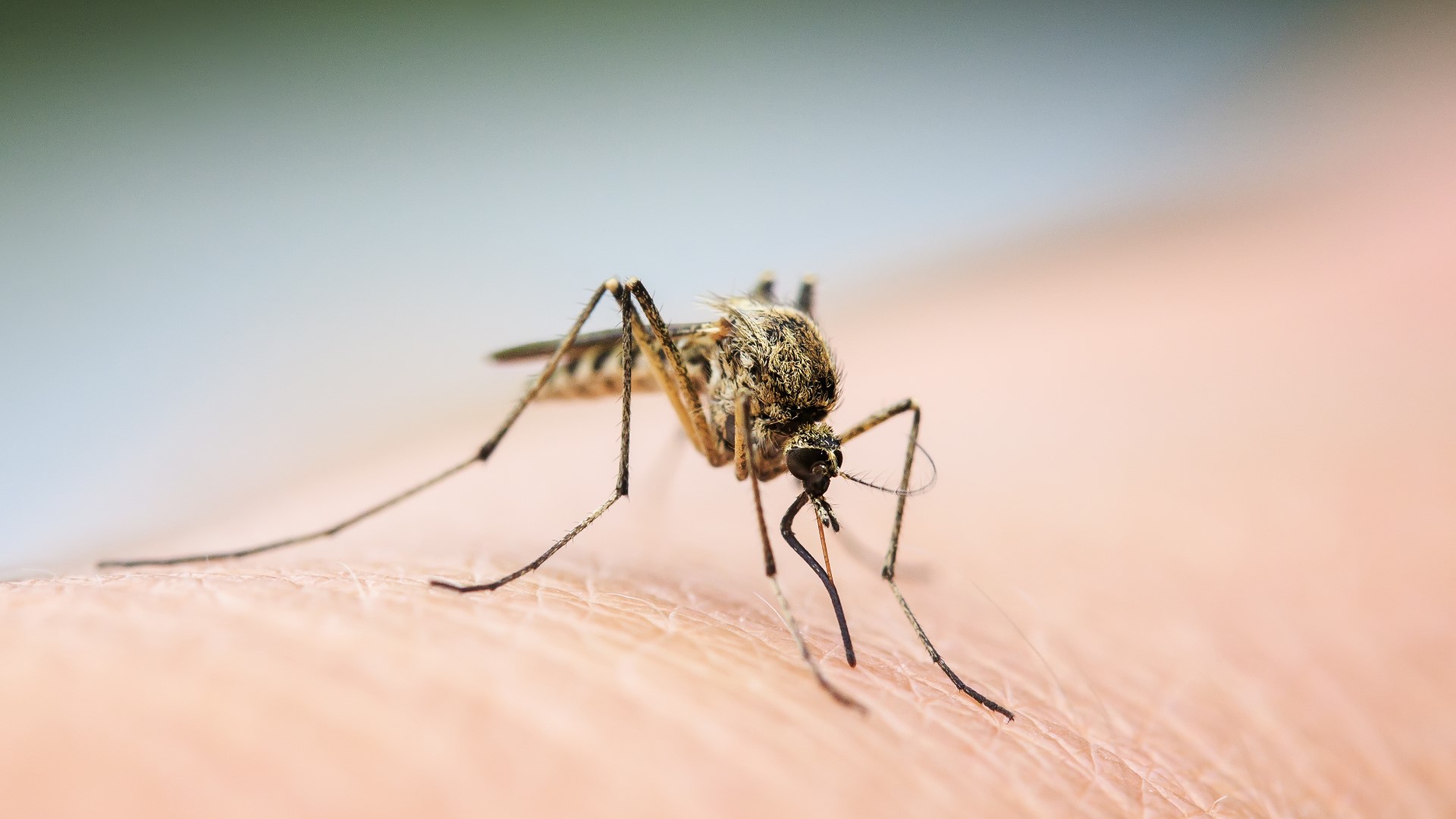TOLEDO, Ohio — EDITOR'S NOTE: The attached video originally aired on May 22, 2021.
A mosquito pool from Lucas County tested positive for West Nile Virus, according to the Ohio Department of Health Monday.
The sample, collected on June 10 near Ottawa Park, was the first in the state of Ohio to test positive for the virus this year.
In response, representatives with the Toledo Area Sanitary District (TASD) said they plan to increase treatment in the area surrounding the positive pool and continue monitoring local mosquito populations.
This positive mosquito pool should not be interpreted as an all-inclusive risk indicator, sanitary district officials said. Instead, it should serve as a reminder that West Nile Virus is present, and that people should take precautions in situations where they are exposed to mosquitos.
As of Monday, there have been no locally-acquired human cases of mosquito-borne diseases reported in Lucas County during the 2021 season.
SUGGESTED PRECAUTIONS
- To avoid mosquito bites, wear EPA-registered mosquito repellents containing DEET whenever mosquitoes are around.
- Wear long, loose and light-colored clothing, and socks when outdoors.
- Mosquitoes can bite through thin clothing, so spray clothes with repellent containing DEET or another EPA-registered mosquito repellent.
- Wear protective clothing and repellent from dusk to dawn or consider avoiding outdoor activities during these times.
- Mosquito proof homes by installing or repairing screens on windows and doors to keep mosquitoes from getting inside.
- To address mosquito breeding around the home, get rid of potential mosquito breeding sites to help prevent mosquito-borne diseases after heavy rains and flooding.
- To reduce mosquito breeding, empty standing water from flowerpots, gutters, buckets, pool covers, birdbaths, and other water-holding containers. If homeowners have containers that are too large to empty, products designed to control mosquito larvae, containing BTI (Bacillus thuringiensis israelensis), can be found at home improvement stores.
- For above ground swimming pools that are no longer going to be used, contact TASD to receive a consultation to determine if the pool can be removed at no additional cost.
WHAT THE CITY IS DOING
As mosquito test results are received through the season, a West Nile Virus risk gauge and map will be updated on the Toledo Area Sanitary District website here.
Sanitary district leaders said that while nuisance populations of mosquitos have been low this year, the species of concern for spreading West Nile Virus to people has had very high population numbers. In an effort to combat this mosquito, TASD employed an integrated approach of breeding source reduction, treatment of larval mosquito habitats and nighttime fogging treatments. The nighttime spray schedule can be viewed on the TASD website and it is available as a recorded message at 419-726-7891 by hitting option 2.
If you're concerned, you can also register to receive mosquito condition email updates and notifications for spray treatments being scheduled near your home through the blue “Email Notifications” bell at the bottom of the TASD website.
In addition to West Nile Virus, there are several other diseases that mosquitoes can transmit to humans, like La Crosse Encephalitis Virus, Jamestown Canyon Virus, St. Louis Encephalitis Virus, and Eastern Equine Encephalitis Virus.
For information on prevention messaging, surveillance, or for up-to-date mosquito-borne disease information, check out the Ohio Department of Health mosquito website here.
MORE FROM WTOL

